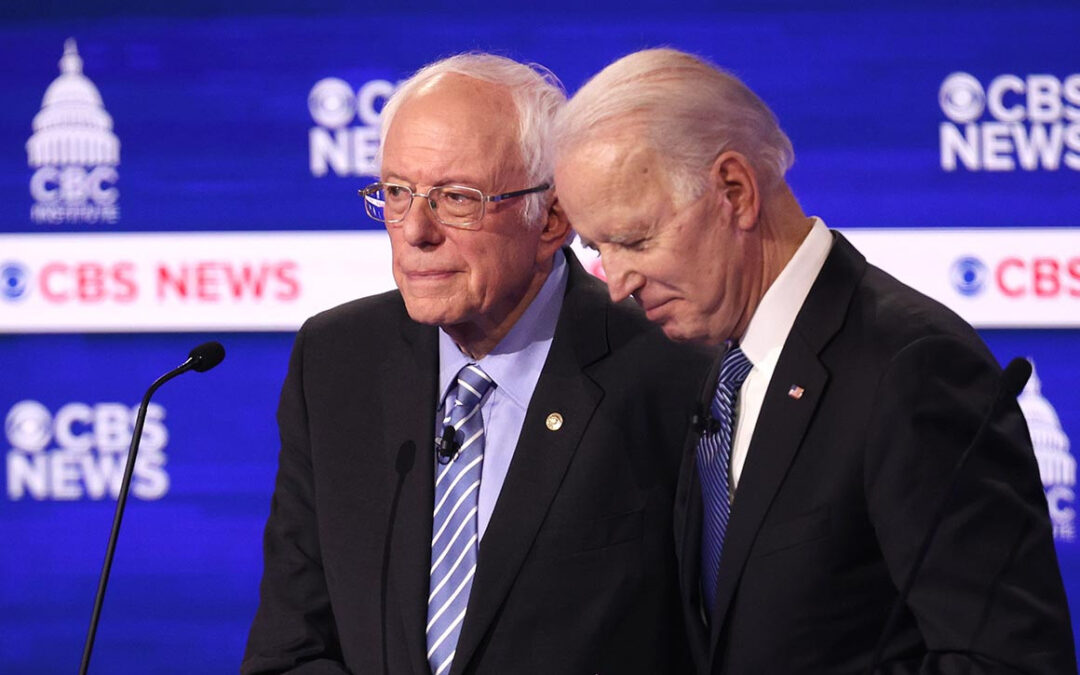Senator Bernie Sanders of Vermont dropped out of the Democratic presidential race today, concluding a quest for the White House that began five years ago in relative obscurity but ultimately elevated him as a champion of the working class, a standard-bearer of American liberalism and the leader of a self-styled political revolution.
Sanders’s exit from the race establishes former Vice President Joe Biden as the presumptive nominee to challenge President Trump.
In a live stream this morning, Sanders, without his characteristic spark, was by turns gracious and resolute as he announced his decision. “I cannot in good conscience continue to mount a campaign that cannot win and which would interfere with the important work required of all of us in this difficult hour,” Mr. Sanders said.
Though he made it clear that he viewed Biden as the party’s 2020 nominee, he said he would remain on the ballot in states that still have primaries and would continue to gather delegates — a move that would give him leverage to influence the Democratic platform and continue carrying his message.
“While this campaign is coming to an end, our movement is not,” he added.
In a race reshaped, and eclipsed, by the escalating coronavirus crisis, Sanders faced no realistic path to the nomination after a series of lopsided losses to Biden, beginning in South Carolina in late February and culminating with a string of losses last month in crucial states like Michigan and Florida.
With the public health emergency preventing both candidates from holding in-person campaign events, Sanders spent the last several weeks on the sidelines, delivering addresses via live stream and making occasional television appearances, while facing calls from fellow Democrats to exit the race and help unify the party behind Biden.
Though Biden had been careful not to pressure Sanders, he had begun to move ahead as if the race were over, taking steps, for example, to begin his search for a running mate.
As Sanders pursued the White House for a second time, he promised that he could transform the electorate, bringing new voters under the Democratic tent, but that goal eluded him.
Even Sanders has lamented that he was unable to produce a surge in young voters.
In early primaries this year, he also failed to show that he had remedied a crucial weakness from his 2016 run: a lack of support from black voters, a vital base of the Democratic Party.
In state after state across the South — Alabama, the Carolinas, Mississippi, Virginia — he was unable to chip away at Biden’s strong support among African-Americans.
In many ways, Sanders never overcame the widely held view among Democrats that he was a political outlier, a self-described democratic socialist who proudly proclaimed himself to be an independent senator from Vermont rather than a member of the party establishment.
His departure from the race is a striking turnaround for a candidate who less than two months ago was the clear front-runner, after finishing in a tie for first in Iowa and winning in New Hampshire and Nevada.
And for a man who is loath to admit defeat, it is a concession that he saw no path to overcoming Biden, and that he may have more leverage for his liberal policy agenda if he ceded the race and joined forces with his rival.
His exit is also a sharp contrast to his bid in 2016, when he stayed in an increasingly acrimonious race against Hillary Clinton even after it became clear she would be the eventual nominee.
